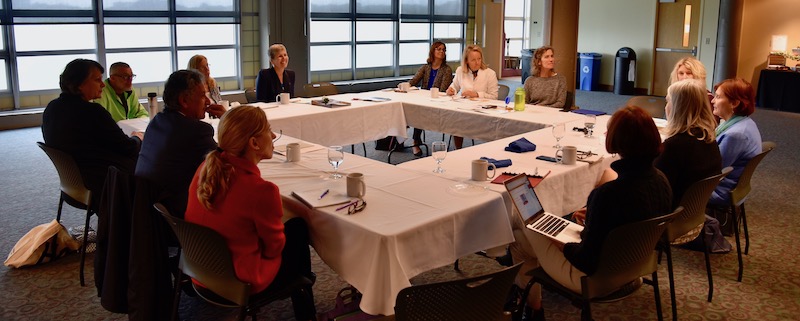
The University of Southern Maine is forging ties with Norway’s University of Tromsø.
Representatives of the two schools signed a partnership agreement June 4 aimed at exchanges, research and ongoing collaboration.
“We are pursuing opportunities for our students to have international experiences that ideally match with our research,” said Glenn Cummings, USM’s president.
For two days, USM hosted Aase Tveito, senior advisor to the rector of the University of Tromsø, and Sigrid Ag, director of the school’s international office.
“I think we have so many things in common,” Ag said. “We look for institutions where there are mutual benefits. This is one of those opportunities.”
The University of Tromsø is located in northern Norway and describes itself as the northernmost university in the world. The university has taken a special interest in climate change, the exploitation of Arctic resources and environmental threats. It is also a founder of the University of the Arctic, an international network of 160 study and research institutions of the circumpolar region.
With this partnership, USM hopes to build on its agreements with universities in Iceland to better understand the Arctic, the Nordic countries and the North Atlantic.
“There are major trends and transitions going on in the North Atlantic that add enormous value to our culture,” President Cummings said.

At the same time, some of the University of Tromsø’s demographics resemble USM. The average age of its 15,000 students is 29 years old. And the school is working hard to meet regional shortages of teachers, nurses and engineers.
Tveito and Ag met with members of the faculty for a roundtable discussion of other possible shared fields of study, including research on food, travel and health.
Judith Tupper, the director of Population Health and Health Policy at the Cutler Institute for Health and Social Policy, said she was eager to visit Tromsø. She won’t be the first.
Already, several members of USM’s staff and faculty have been.
Maine could benefit from ongoing collaboration between the universities, said Ross Hickey, USM’s assistant provost for Research Integrity.
“There is an enormous amount of work being done in Norway to understanding climate change and its effects on fisheries and the aquaculture,” Hickey said. “Applying that knowledge and information to Maine could have a large impact.”

